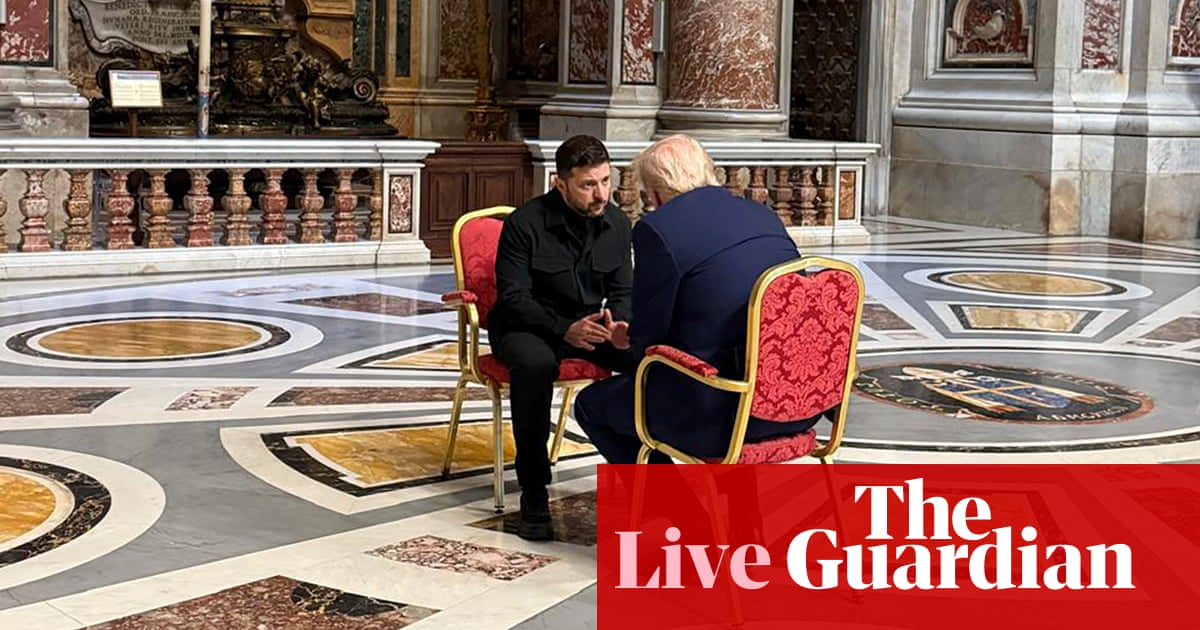The article presents a controversial statement made by former US President Donald Trump regarding Ukraine's potential willingness to cede Crimea to Russia. This assertion comes amid a broader context of ongoing discussions about the war in Ukraine and the geopolitical dynamics involving Russia, the US, and Europe. The reactions from various political figures highlight the sensitivity and implications of such claims.
Potential Manipulative Intentions
Trump's suggestion that Ukrainian President Volodymyr Zelenskyy might be ready to give up Crimea could serve several purposes. Firstly, it may aim to frame the narrative around peace negotiations, implying that concessions might be necessary for a resolution. By publicly stating such a claim, Trump could be attempting to position himself as a mediator or peacemaker, which aligns with his broader political narrative of seeking to resolve conflicts through negotiation. This approach, however, might be perceived as undermining Ukraine's sovereignty and the longstanding international consensus about the illegality of Russia's annexation of Crimea.
Public Perception and Reaction
The article is likely to evoke mixed reactions among the public and political analysts. Some may interpret Trump's comments as a pragmatic approach to achieving peace, while others, including German Defence Minister Boris Pistorius, view it as a capitulation that could embolden Russian aggression. This divergence in interpretation suggests a potential polarization of opinions, which could lead to increased tensions within both the American and European political landscapes.
Hidden Agendas and Information
While the article focuses on Trump's comments, it may obscure broader discussions about the ongoing war and the international response to Russia's actions. The framing of Trump's remarks could distract from the complexities of the conflict and the necessity of a unified stance among Western allies regarding support for Ukraine. There might be an underlying agenda to minimize the narrative around continued military support for Ukraine by shifting the focus toward potential territorial concessions.
Trust and Relationships
Trump's comments also raise questions about trust in international relations, particularly regarding Putin and the possibility of a peace deal. His ambivalence about trusting Putin reflects a common sentiment in international diplomacy that is often fraught with skepticism. This dynamic is crucial as it influences how nations navigate their relationships with each other, especially in conflict situations.
Impact on Political and Economic Scenarios
The implications of this article could extend into the political and economic realms. Should the public adopt a belief in potential territorial concessions, it might affect the level of support for Ukraine among Western nations. Economically, uncertainty about the war's resolution can influence market stability and investor confidence, particularly in industries closely tied to defense and energy sectors.
Target Audience
This news piece is likely tailored to audiences interested in international relations, geopolitical strategy, and the ongoing conflict in Ukraine. It may resonate more with individuals who are engaged in political discourse and those concerned about the implications of foreign policy decisions.
Market Reactions
In terms of market impact, the conversation around territorial concessions could influence stock prices in defense and energy sectors. Companies involved in military supplies to Ukraine or energy resources from the region may see fluctuations based on public sentiment regarding the war and the perceived likelihood of peace.
Geopolitical Significance
The article contributes to a broader discussion on the balance of power and the current geopolitical climate. Trump's remarks come at a time when global attention is focused on the ramifications of the Ukraine conflict, making it a relevant topic in today's discourse about international security and relations.
Artificial Intelligence Influence
It’s possible that AI tools were employed in crafting the narrative of this article, particularly in the structuring of the information and the emphasis on specific quotes. However, the subjective interpretation and framing of Trump’s comments suggest a human editorial influence aimed at shaping public perception.
In conclusion, the article reflects a complex interplay of political messaging, public perception, and the implications of international relations in the context of the Ukraine conflict. Its reliability hinges on the context of the statements made and the reactions they provoke, which can vary widely among different stakeholders.
